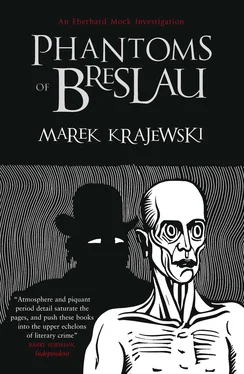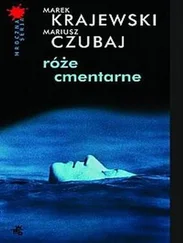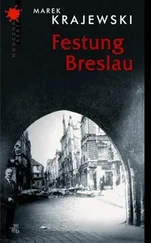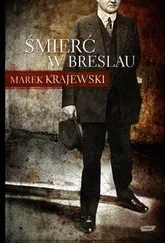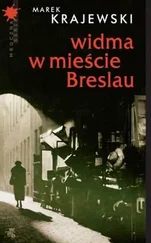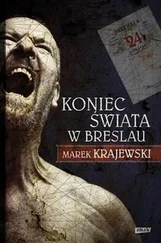Marek Krajewski - Phantoms of Breslau
Здесь есть возможность читать онлайн «Marek Krajewski - Phantoms of Breslau» весь текст электронной книги совершенно бесплатно (целиком полную версию без сокращений). В некоторых случаях можно слушать аудио, скачать через торрент в формате fb2 и присутствует краткое содержание. Жанр: Полицейский детектив, на английском языке. Описание произведения, (предисловие) а так же отзывы посетителей доступны на портале библиотеки ЛибКат.
- Название:Phantoms of Breslau
- Автор:
- Жанр:
- Год:неизвестен
- ISBN:нет данных
- Рейтинг книги:3 / 5. Голосов: 1
-
Избранное:Добавить в избранное
- Отзывы:
-
Ваша оценка:
- 60
- 1
- 2
- 3
- 4
- 5
Phantoms of Breslau: краткое содержание, описание и аннотация
Предлагаем к чтению аннотацию, описание, краткое содержание или предисловие (зависит от того, что написал сам автор книги «Phantoms of Breslau»). Если вы не нашли необходимую информацию о книге — напишите в комментариях, мы постараемся отыскать её.
Phantoms of Breslau — читать онлайн бесплатно полную книгу (весь текст) целиком
Ниже представлен текст книги, разбитый по страницам. Система сохранения места последней прочитанной страницы, позволяет с удобством читать онлайн бесплатно книгу «Phantoms of Breslau», без необходимости каждый раз заново искать на чём Вы остановились. Поставьте закладку, и сможете в любой момент перейти на страницу, на которой закончили чтение.
Интервал:
Закладка:
“Any time, Mr Mock,” Kitty smiled flirtatiously. It pained Mock to think that this beautiful woman in a crooked wig had once been a child, cuddled and kissed by her parents. “Naked or dressed up? I’ve got a Roman outfit too … And all sorts of lingerie accessories … For the clients, too …”
Mock studied the girl in silence. In his head thundered the words: “Dressed up …”, “outfit …”
“Listen Kathe,” he said, addressing her by her rightful name. “I’ve not been here for a long time. I didn’t know queers came here. I didn’t know anything about dressing up … Who thought all that up? Your new boss?”
“Yes, Mr Nagel.”
“And August, does he dress up for his clients, too?”
“Rarely.” Kathe smirked. “But some do ask.”
“And what does August dress up as?”
“A gladiator, a worker,” she mused. “Oh, I don’t know what else … Usually it’s a gladiator … There was one client who yelled” — and here Kitty shouted, imitating a drunkard’s gibberish — “I want a gladiator!”
Mock believed in the promptings of intuition and in the automatism of thought — a recent fashion in avant-garde art — and he appreciated the notion of a chain of even the most extraordinary associations. He believed in the prophetic value of a sequence of images, and he did not consider Duchamp’s manifestos to be inauthentic or degenerate. He believed in premonitions and in a policeman’s superstitions. He knew that now, too, it was intuition which had prompted him to ask about August dressing up. He closed his eyes and tried to conjure up associations. Nothing. Thirst. A hangover. Tiredness. A sleepless night. Kitty imitating a drunk and shouting: “I want a gladiator!” A lady in an alcove yelling, in a voice distorted by alcohol: “I want a carter! Now! Immediately!” Mock heard the sounds of a foxtrot. A few days ago, heavy with gin, he had wrapped his arms round the waist of a slim dance-hostess. In the Hungarian King. A young waiter, who was helping him carry Ruhtgard, had explained to him: “Our manager, Mr Bilkowsky, doesn’t allow the hiring of fiacres. The horses foul the pavement in front of the hotel.” The lady had shouted: “I want a carter!” The waiter had then replied … What had he replied? Yes, he had replied: “Right this minute, at your service, my lady.”
“Tell me, Kathe,” — Mock could sense the trail he was going to follow — “does August dress up as a carter? Or a sailor, perhaps?”
Kitty shook her head and watched in surprise as Mock, despite her negative reply, smiled gleefully and ran from the room, almost breaking the high mirror sprinkled with powder.
BRESLAU, THAT SAME SEPTEMBER 4TH, 1919
SIX O’CLOCK IN THE MORNING
Mock bumped into Muhlhaus in the hotel entrance. The new chief of the Murder Commission was crushing the mouthpiece of his pipe in his teeth and twirling his grey beard in his fingers. He took Mock by the arm and very slowly led him to where the corpse had been found. The birds, lost in song, announced another hot September day. Above the plane trees rose the yellow circle of the sun.
“Let’s take a little walk, Mock. Do you like taking early-morning walks in the park?”
“Only when there are no corpses hanging from the trees.”
“I see you’re in a good mood, Mock. Nothing like gallows humour.” Muhlhaus took the pipe from his mouth and squirted brown saliva into the bushes. “Tell me, are we dealing with a serial killer?”
“I’m not well up on criminal theory, and anyway, I don’t know whether such a thing exists, or how serial killings are defined …”
“And according to you …”
“I think we are.”
“Victims of serial killings have something in common with each other. Firstly, the murderer leaves them in a place where they’re bound to be found. The sailors’ corpses at the dam, a body hanging from a tree in a popular walking spot … And secondly, what do these victims of ‘Mock’s enemy’, as the perpetrator is widely known, have in common?”
“‘Widely’ meaning where?”
“For the time being where we work, in the Police Praesidium … Before long in the Breslau newspapers and across the whole of Germany. Despite the secrecy of the operation, sooner or later there’s going to be a leak to the press. We can’t hold everybody in quarantine, like that maid in the park and her lover. You’re going to be famous …”
“What was it you asked me?” Mock wanted to slap Muhlhaus as he had August, and then to run, fly to where pimps offer up male prostitutes dressed in sailors’ outfits; instead of which he had to traipse along beside Muhlhaus with the acrid, smoky aroma of Badia tobacco in his nostrils. His fingers and his back itched; he knew that no amount of scratching would relieve him. The sensation overwhelmed him quite frequently, and he could never find quite the right word for it. A fragment from Livy came to mind in which a Latin adjective perfectly expressed the present state of his spirit: impotens — out of one’s mind with impotence.
“I asked you what the victims of ‘Mock’s enemy’ have in common with each other?”
“That singular name given to the perpetrator is an answer in itself. Why are you asking something we’ve already known for so long?”
“I could give you the cutting answer that I’m the one asking questions here, Mock, but I won’t. I’ll play at being Socrates and you’ll arrive at the truth yourself …”
“I haven’t got time …” said Mock, leaving Muhlhaus abruptly and walking resolutely alongside the pond.
“Halt!” shouted Muhlhaus. “That’s an order!” Mock stopped short, turned towards the pond, knelt on the grassy bank and scooped some water into his hands. “No time, eh? Well then, as from today you’ll have plenty of time. There isn’t much going on in the Vice Department. You don’t work for me any more. You’re going back to Ilssheimer.”
“Why?” Trickles of water ran down Mock’s face, and through them he could see the slits of Muhlhaus’ squinting eyes. He conjured up his future in the Vice Department: bisexual Ilssheimer sacking the man who had exposed him, giving as his reason “dereliction of duty due to alcohol abuse”.
“I took you on for two reasons. Firstly, the murderer wants something from you. I thought you knew what he wanted; I thought you would make after him like a rabid dog avenging the death of innocent people …”
“The rabid dog of vengeance.” Mock wiped the water from his cheeks. “Are you acquainted with Auweiler’s poetry?”
“Whereas you have no idea what the murderer wants. The psychotherapy session with Doctor Kaznicz certainly hasn’t moved the investigation …”
“And that’s why you’re dismissing me?” Mock saw columns of magnesium shoot into the sky several metres away, where the body had been discovered. Smolorz had just left the spot and, carrying the notes he had taken when questioning the unfulfilled lovers, was making his way over to Mock and Muhlhaus. “The rabid dog of vengeance no longer proved necessary, right?”
“That’s not the reason, Mock.” Muhlhaus took him once again by the arm. “That’s not the reason. You haven’t answered me. I’m not going to play at being Socrates and you’re not going to be my Alcibiades …”
“No, especially as the latter came to a sticky end …”
“Secondly, what do the victims have in common? Their murderer’s hatred of Mock. That’s what all six have in common. But what do the last two victims have in common?” Muhlhaus raised his voice and glanced at Smolorz as he approached. “Well, tell me, damn it, what do the last two victims have in common? The old sailor Ollenborg and Wohsedt, the river port director?”
Читать дальшеИнтервал:
Закладка:
Похожие книги на «Phantoms of Breslau»
Представляем Вашему вниманию похожие книги на «Phantoms of Breslau» списком для выбора. Мы отобрали схожую по названию и смыслу литературу в надежде предоставить читателям больше вариантов отыскать новые, интересные, ещё непрочитанные произведения.
Обсуждение, отзывы о книге «Phantoms of Breslau» и просто собственные мнения читателей. Оставьте ваши комментарии, напишите, что Вы думаете о произведении, его смысле или главных героях. Укажите что конкретно понравилось, а что нет, и почему Вы так считаете.
